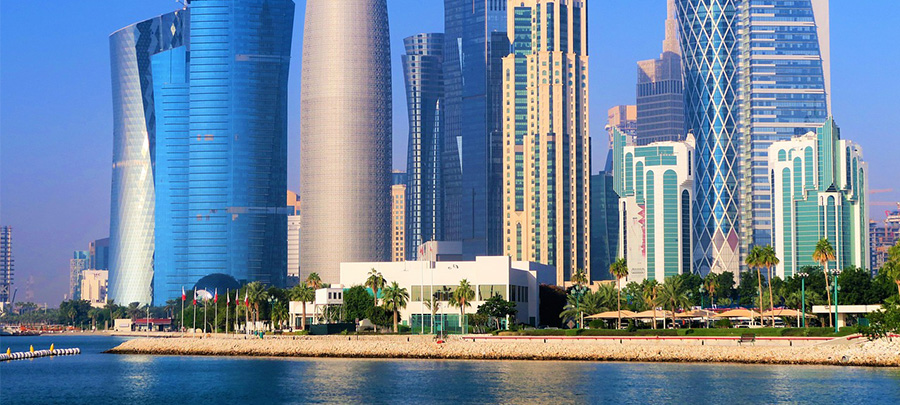The Middle East remains one of the most dynamic regions for international trade, with a rapidly growing population, expanding hospitality sector, and a strong reliance on imported food. For producers worldwide, connecting with Middle East food importers—and particularly with leading UAE food importers and Dubai food importers—represents a major opportunity in 2024–2025. In this article, we highlight the products in highest demand, the emerging consumption trends, and practical steps for producers to expand and succeed in this fast-moving market.
Why Food Imports Are So Important in the Middle East
Due to limited arable land and water resources, Middle Eastern countries import a large share of their food. The GCC region imports around 85% of its food needs, with the UAE and Saudi Arabia being two of the biggest importers. This dependency creates significant opportunities for exporters who can meet the region’s requirements for quality, halal certification, and innovation.
The Most Demanded Products
Dairy and Cheese Products
UAE and Dubai food importers are consistently searching for premium cheese, yogurt, and lactose-free alternatives. Demand is driven by both expatriate consumers and high-end hotels. Imports remain high with 85% of its food coming from abroad
Halal Meat and Poultry
Halal-certified beef, lamb, and poultry are essential. Frozen and ready-to-cook products are particularly popular with Middle East food importers serving retail and foodservice markets.
Fresh Fruits and Vegetables
Apples, citrus fruits, bananas, and avocados dominate imports. UAE food importers are also seeing rising interest in organic and exotic produce, especially for supermarket chains in Dubai and Abu Dhabi.
Basmati Rice
India saw exports rise nearly USD 5.87 billion in 2024–25, a 3.97% increase year-on-year, with Saudi Arabia as the top importer (~11.73 LMT)
Processed and Packaged Foods
Convenience is key: frozen bakery items, ready meals, sauces, and snacks are in growing demand among young urban populations and busy professionals.
Food Premixes & Health Foods
The Middle Eastern food premix market is expected to hit USD 236.3 million in 2025, growing to USD 618.5 million by 2035 (CAGR 10.1%). Meanwhile, health & wellness foods—covering organic, gluten-free, plant-based, and functional products—are valued at USD 16.12 million in 2024, with anticipated growth at a 9.5% CAGR
Beverages
From premium coffee and tea to plant-based drinks, juices, and functional beverages, this is a fast-growing category. Dubai food importers are especially keen on innovative non-alcoholic options that fit with health and wellness trends.
Emerging Trends in 2024–2025
-
Health & Wellness continues to gain traction: the niche health food market is expanding robustly.
-
E‑commerce & Digital Retail: Though not numerically quantified here, digital grocery platforms are rapidly gaining ground in urban markets across the GCC.
-
Sustainability & Traceability: Consumers and buyers increasingly demand transparency. GCC governments are pushing food security strategies involving investments of USD 3.8 billion in agri-tech and food innovation, aiming to bolster local production and resilience and add USD 30.5 billion to the regional economy.
-
Hospitality & Premium Demand: With the MENA food service market valued at USD 92.5 billion in 2024, rising to USD 101.0 billion in 2025 (CAGR ~9.4%), there’s a strong appetite for premium and niche food products
How Producers Can Work with UAE and Dubai Food Importers
Meet Halal and Cultural Standards
Halal certification is a must for most categories. Producers should also consider packaging sizes, labeling in Arabic and English, and marketing that respects cultural norms.
Partner With Reliable Distributors
Building relationships with UAE food importers or distributors in Dubai is one of the fastest ways to secure access to supermarkets, hotels, and restaurants.
Differentiate With Quality
Highlighting the origin of your product, authentic production methods, and health benefits can help you stand out.
Target Key Channels
Hotels, catering services, and retail chains remain the most important entry points for international producers. Many Dubai food importers specialize in supplying this sector.
Use Data to Find the Right Partners
With the BestFoodImporters platform, you can instantly access up-to-date databases of verified Middle East food importers, including hundreds of UAE and Dubai food importers, saving you time and helping you expand strategically.
Conclusion
The Middle East’s food import market in 2024–2025 offers enormous growth potential. Producers who align with health and wellness trends, meet halal requirements, and build strong partnerships with UAE food importers and Dubai food importers will find abundant opportunities for success.
By staying informed about regional trends and leveraging platforms like BestFoodImporters to connect with trusted Middle East food importers, you can enter this market with confidence and grow your exports in one of the world’s most promising regions.
